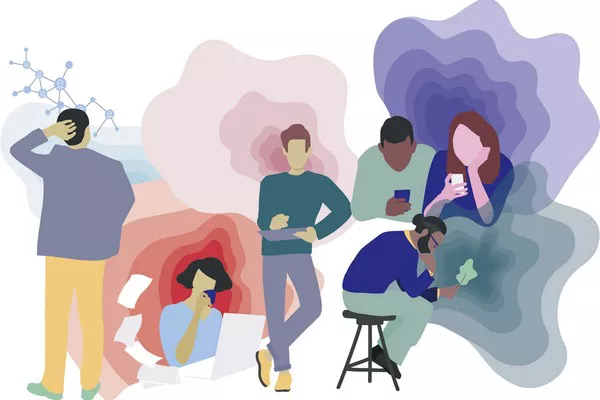Music has been an integral part of human culture for centuries, transcending borders and languages to evoke emotions and connect people. Beyond its aesthetic appeal, music has long been recognized for its therapeutic qualities and its positive impact on mental health. Whether listening to a favorite song, playing an instrument, or engaging in music therapy, music can significantly influence our emotional well-being and overall mental health. In this article, we will explore the various ways in which music benefits mental health and the therapeutic potential of incorporating music into our daily lives.
1. The Universality of Music:
Music is a universal language that speaks to the soul. Regardless of cultural background or personal experiences, music can elicit a wide range of emotions, from joy and excitement to introspection and calmness. This universality makes music an accessible and powerful tool for improving mental well-being.
2. Reducing Stress and Anxiety:
Listening to soothing music has been shown to reduce stress and anxiety levels significantly. When we listen to calming melodies, our bodies release hormones like serotonin and dopamine, which promote relaxation and positive emotions. Slow-tempo music, in particular, can help slow down our heart rate and breathing, inducing a state of relaxation.
3. Enhancing Mood:
Music has the ability to lift our spirits and enhance our mood. Upbeat and lively tunes can release endorphins, the “feel-good” hormones, which promote a sense of happiness and contentment. Creating playlists with uplifting songs can be a valuable tool for combating low moods and fostering a positive mindset.
4. Providing Emotional Catharsis:
Music can serve as a powerful outlet for emotions, allowing individuals to express and process their feelings. Whether through listening to poignant lyrics that resonate with our experiences or playing an instrument to channel emotions, music provides a form of emotional catharsis, helping us navigate complex emotions and experiences.
5. Fostering Connection and Social Bonds:
Music has the unique ability to bring people together and foster social connections. Shared musical experiences, such as attending concerts or singing in a choir, create a sense of belonging and strengthen social bonds. Engaging in music with others can reduce feelings of isolation and promote a supportive community.
6. Boosting Cognitive Function:
Playing a musical instrument or engaging in active music-making can have positive effects on cognitive function. Learning and practicing music involve various mental processes, such as memory, attention, and motor skills. As a result, musicians often exhibit improved cognitive abilities, which can benefit mental health in the long term.
7. Music as a Coping Mechanism:
In times of stress or adversity, turning to music can be a healthy coping mechanism. Many individuals find solace in listening to familiar songs or creating playlists that resonate with their current emotional state. Music can provide a sense of stability and comfort during challenging times.
8. Music Therapy:
Music therapy is an evidence-based form of therapy that utilizes music to address physical, emotional, cognitive, and social needs. Trained music therapists use various musical techniques to support individuals in achieving specific therapeutic goals. Music therapy has shown promising results in treating a range of mental health conditions, including depression, anxiety, and post-traumatic stress disorder (PTSD).
9. Improving Sleep Quality:
Listening to calming music before bedtime can promote better sleep quality. Slow, gentle melodies can help relax the mind and body, preparing individuals for a restful night’s sleep. Incorporating music into a bedtime routine can be especially beneficial for those experiencing sleep disturbances.
10. Music and Mindfulness:
Mindfulness, the practice of being fully present in the moment, can be enhanced through music. Engaging in active listening, focusing on the sounds, rhythms, and melodies, can anchor individuals in the present moment, reducing rumination and promoting a sense of calmness.
11. Personalizing Music for Mental Health:
Each individual’s relationship with music is unique, and what resonates with one person may differ from another. Personalizing music choices to align with individual preferences and emotional needs can maximize the therapeutic benefits of music.
Conclusion:
Music’s impact on mental health is both profound and multifaceted. From reducing stress and anxiety to enhancing mood and fostering social connections, music offers a myriad of therapeutic benefits. Whether listening to favorite songs, engaging in music-making, or participating in music therapy, incorporating music into our daily lives can promote emotional well-being and enhance our mental health.
As a universal language that transcends cultural and linguistic barriers, music has the power to unite and heal. By recognizing and harnessing the healing power of music, individuals can tap into this valuable resource to support their mental health journey. Whether seeking relaxation, emotional expression, or cognitive enhancement, music serves as a powerful tool for cultivating resilience, finding solace, and nurturing our mental well-being.


